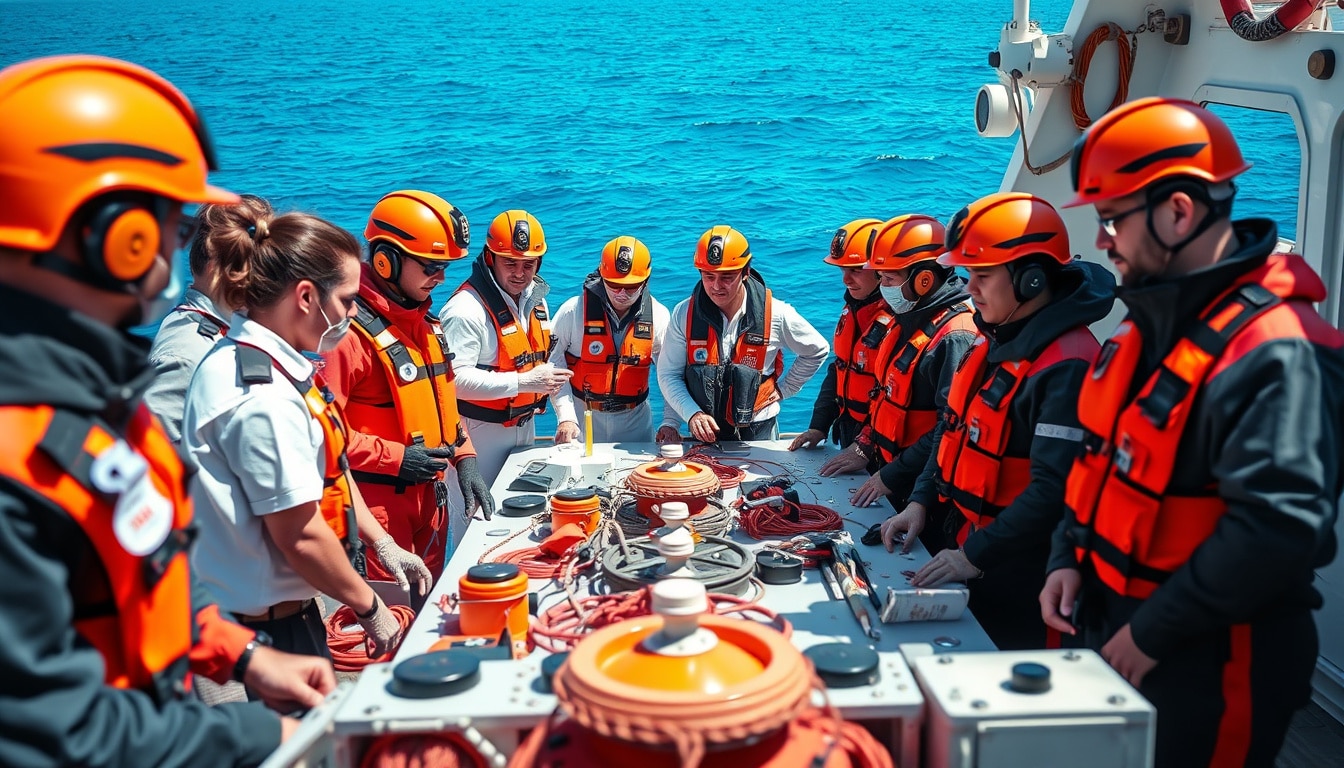In the dynamic and increasingly regulated maritime industry, ensuring compliance with security standards is paramount. This article delves into the significance of accredited maritime training, highlighting how it plays a crucial role in safeguarding assets and ensuring the safety of personnel at sea. With the rise of global trade and the corresponding risks associated with maritime operations, the demand for comprehensive maritime training has never been greater. At the forefront of this movement is the Virtual Maritime Academy, a DNV Certified Maritime Training Provider offering the essential PFSO Course, which carries DNV certification. This guarantees that the training provided meets stringent international standards, ultimately enhancing maritime security compliance.
Learn More about our PFSO/MFSO Course!
Key Takeaways
- Maritime security compliance is crucial for the safety of global trade and maritime operations.
- Accredited training programs enhance the skills and knowledge necessary for effective maritime security.
- Effective training should include practical drills, policy updates, and knowledge of international regulations.
- Staying updated on future trends in maritime security training is essential for ongoing compliance and effectiveness.
- Accredited training fosters trust and reliability among stakeholders in the maritime industry.
Understanding Maritime Security Compliance
In today’s global maritime landscape, ensuring compliance with security regulations is paramount for safeguarding vessels, ports, and facilities. Accredited maritime training plays a crucial role in helping professionals understand and navigate the complexities of maritime security requirements. As a DNV Certified Maritime Training Provider, Virtual Maritime Academy offers the PFSO Course, which is expertly designed to equip participants with the essential knowledge and skills needed for effective Port Facility Security Officer (PFSO) duties. This certification not only affirms the quality of training but also emphasizes the importance of accredited educational programs in meeting international security standards. By engaging in such certified courses, maritime professionals can enhance their competencies and contribute significantly to their organization’s compliance efforts. Therefore, investing in accredited maritime security training is a vital step in mitigating risks and ensuring robust security measures across the maritime industry.
The Importance of Accredited Training Programs
In the maritime industry, ensuring compliance with regulations is paramount, and accredited training programs play a critical role in this process. Accredited training, especially in maritime security, ensures that personnel are equipped with the necessary skills and knowledge to safeguard vessels against threats. For instance, the PFSO Course (Port Facility Security Officer) offered by the Virtual Maritime Academy is DNV Certified, positioning it as a trusted resource within the maritime community. This certification signifies adherence to global standards, providing peace of mind that the training received will meet regulatory requirements. By prioritizing accredited programs like the one from Virtual Maritime Academy, maritime professionals can effectively enhance their capabilities while guaranteeing compliance with international maritime security mandates.
Learn More about our PFSO/MFSO Course!
Key Elements of Effective Maritime Training
Ensuring compliance in the maritime industry is paramount, especially when it comes to security protocols that protect vessels and crews from evolving threats. One of the key elements of effective maritime security training is the commitment to accreditation, which guarantees that the training provider meets recognized industry standards. The Virtual Maritime Academy is a DNV Certified Maritime Training Provider, ensuring that their programs, such as the PFSO Course, not only meet regulatory requirements but also equip maritime professionals with the essential skills and knowledge to maintain security compliance effectively. Accredited training programs foster a thorough understanding of security responsibilities, risk management, and crisis response, which are vital for the effective implementation of maritime security measures. By investing in accredited maritime security training, organizations can enhance their operational readiness while also safeguarding their reputation and compliance with international maritime regulations.
Future Trends in Maritime Training Accreditation
In today’s rapidly evolving maritime landscape, the importance of ensuring compliance through accredited maritime security training cannot be overstated. With increasing threats to security on the high seas, organizations are seeking reliable and effective training solutions to safeguard their operations. This is where institutions like the us, Virtual Maritime Academy, a DNV Certified Maritime Training Provider, play a vital role. Our PFSO Course, which is also DNV Certified, exemplifies the high standards of training that are essential for meeting regulatory requirements and improving safety protocols. As the industry moves forward, we can expect a greater emphasis on maritime security training accreditation to ensure that personnel are well-equipped with the latest tactics and knowledge to handle potential security risks. This trend not only enhances compliance with international regulations but also fosters a culture of safety and preparedness within maritime organizations.















